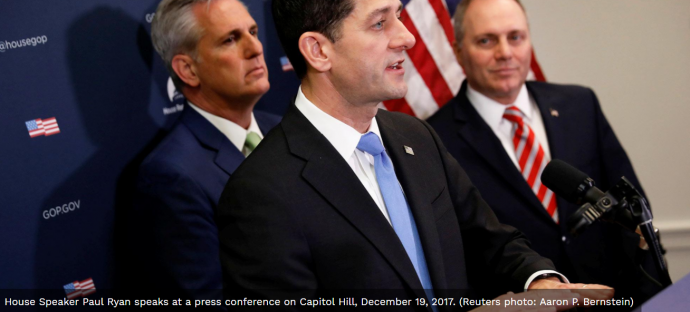False claims will continue to win until conservatives wake up to reality. That reality is called the information war.
Here is Jibran Khan writing at National Review:
Bad arguments are winning.
After the GOP’s tax proposal was finalized, a familiar cry rang out: The bill will raise taxes on all but the richest . . . in 2027. Which just happens to be after the tax cuts are set to expire, a gimmick designed to make the bill comply with congressional budget rules.
The predictable result is that a false claim — Republicans are raising taxes on all but the very rich, full stop — has spread like wildfire across Twitter, and has been given added momentum by think tanks, verified accounts, and trending hashtags.
This effort has certainly paid off. According to a recent New York Times poll, only a third of Americans believe that they will see their taxes go down in 2018. It should come as no surprise, then, that the bill’s extreme unpopularity is in line with historic tax rises, rather than tax cuts: The majority of people think it’s a hike.
In reality, per the Tax Policy Center, the tax bill will lower taxes for all income groups. About 80 percent of people will see a cut in 2018, with another 15 percent facing about the same tax burden. Yes, that’s the same Tax Policy Center whose study is being used as the basis for the claim that the bill increases middle-class taxes.
Other critics have chosen to mischaracterize tax provisions such as the deductions for mortgage interest and state and local taxes, casting them as bedrocks of middle-class financial stability when in reality they disproportionately benefit the wealthy. Over 90 percent of the SALT tax deduction’s value goes to filers making over $100,000.
The mortgage-interest deduction not only serves to favor homeowners over renters, even though homeowners are generally more well-off, but it flows to the wealthiest homeowners in particular. Fewer than half of homeowners claim the deduction. And like the SALT deduction, the mortgage-interest deduction’s value flows overwhelmingly to those making over $100,000 per the Joint Committee on Taxation.
Read more: National Review

